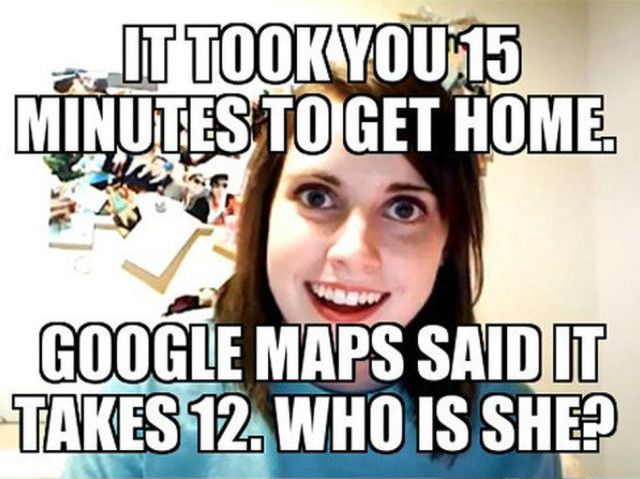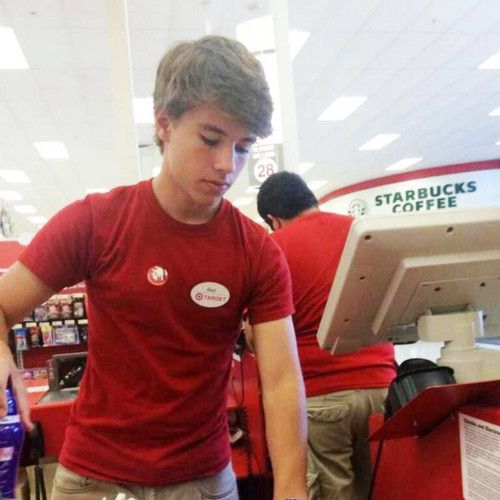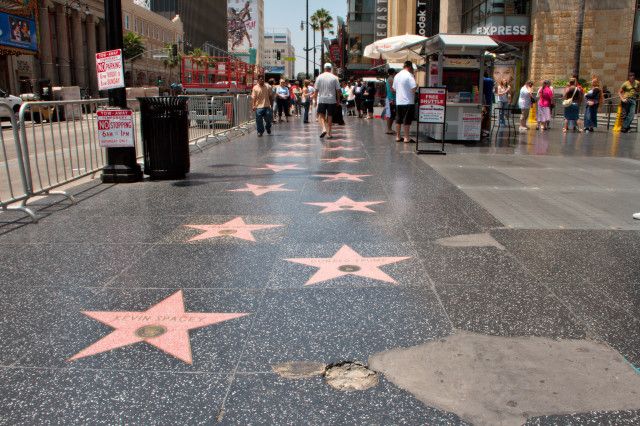The Internet has made it easier than ever for ordinary people to become famous, and sometimes it even happens by accident.
These five people are great case studies for what happens when you go from Average Joe to Internet Meme overnight. Let's take a look at each of their stories and how their newfound fame changed their lives — for better or for worse.
Ghyslain Raza (Star Wars Kid)
In 2002, Ghyslain Raza was a typical 14-year-old high school student in Quebec. He was shy, but he enjoyed making videos. One such video, little did he know, would soon go viral — giving rise to one of the earliest and most widespread cyberbullying attacks of all time.
The video — embedded above — shows Raza's clumsy impression of a Star Wars Jedi knight, wielding a makeshift light saber and acting as if no one was watching. And as far as Raza was concerned, no one was watching. But in 2003, his classmates posted the video online without his knowledge, and in no time tens of millions of people had seen it. This was quite remarkable for 2003 — two years before YouTube was founded.
The reactions were far from positive, though. Online, death threats flooded in and people insisted that Raza should commit suicide. Offline, he was bullied so badly by his peers that he became depressed and dropped out of school to go to a children's psychiatric ward.
Raza maintained his silence for a long time. But in 2013 — a decade later — he spoke out.
Now a law school graduate from McGill, Raza said he wanted to tell his story because too many cyberbullying cases — which have become more and more common — end in suicide.
"What I saw was mean," Raza told French-Canadian journalist Jonathan Trudel. "It was violent. People were telling me to commit suicide."
It was a "very dark period" of his life, he said. "No matter how hard I tried to ignore people telling me to commit suicide, I couldn't help but feel worthless, like my life wasn't worth living."
"You'll survive. You’ll get through it," he said. "And you're not alone. You are surrounded by people who love you."
Laina Morris (Overly Attached Girlfriend)
Surely you've seen this face before.
It's the face of Laina Morris — also known as Overly Attached Girlfriend. The popular meme began in 2012 with a video of her twist on Justin Bieber's "Boyfriend":
"I wouldn't call it jealousy, just looking out for you / Reading all your texts / Watching everything you do."
The video itself went viral after it was picked up by Reddit, racking up more than 170,000 views the first day. But perhaps more far-reaching are the countless screencaps of Morris's face with white block letters spelling out various quotes you'd expect to hear from — you guessed it — your overly attached girlfriend. Most of them are funny, but — like so many other memes — the Internet has really beaten it to death.
Unlike Raza, Morris initiated her own Internet fame, and she has embraced every bit of it. In 2012, she rode the initial wave to raise over $22,000 for charity, and has since established an entertainment career for herself. She has amassed more than 1.2 million subscribers on YouTube to date and puts out new content every week. While some of her videos still include the OAG persona, she often branches out to perform as herself, branded simply as Laina.
Zeddie Little (Ridiculously Photogenic Guy)
On March 31, 2012, computer programmer Will King took the above photo of runners at the Cooper River Bridge Run in Charleston, South Carolina. Three days later, he submitted the photo to the /r/pics subreddit with the caption "My friend calls him 'Mr Ridiculously Photogenic Guy.'" Before long, the post had generated more than 40,000 upvotes.
This led to fun edits like this gem from Redditor chehov:
The next day, the Charleston City Paper identified the man as Zeddie Little.
On April 16, 2012, Little conducted a Reddit AMA where he described his reaction to his unexpected fame:
I got a call from Redditor friends about 4 hours after the image was initially posted on the internet. They were saying I was number one on Reddit, and gave no explanation, so I assumed whatever it was was really bad, but I was racking my brain as to what it could have been.
When I finally saw the photo I laughed for about an hour. It was just surreal. It's still surreal.
As one of the few people to become accidentally famous for something positive, Little seemed to really enjoy the experience. When asked about the best thing to come from his overnight fame, he responded:
I have to say, I really enjoy being part of such a good joke. I was noticed by an older woman around 70 or so in the grocery store on Saturday and she was ecstatic, saying, "I saw you on my TV!"
As well, I'm completely honored to be approached by the John Ritter Foundation for Aortic Health to run the NYC marathon. Any way I can promote healthy living and such positivity is really humbling.
Alex Christopher LaBeouf (#AlexFromTarget)
It started as a normal work day for Target employee Alex Christopher LaBeouf. It was November 2, 2014, and the 16-year-old cashier was bagging groceries as usual. But things would soon take a turn for the weird.
Without his knowledge, a customer snapped his photo and posted it on Twitter (along with the caption "YOOOOOOOOOO"), somehow making him an instant phenomenon among all the teenage girls of the Internet. He was famous by the end of his shift.
The hashtag #AlexFromTarget quickly became a thing, with more than a million mentions in the first 24 hours. And when someone uncovered Alex's Twitter handle (@acl163), he jumped from 144 followers to more than 200,000. (He has over 700,000 followers at the time of this writing.)
A couple of days later, Alex appeared on the Ellen DeGeneres show to discuss his newfound fame:
But it's not all rainbows and butterflies: Alex's Internet fame came with a dark side.
Thousands of people took to Twitter to criticize the young cashier — calling him names, fabricating stories about him, and generally claiming that he doesn't deserve so much attention. There were also a number of death threats on social media and in private messages, including one that said, "Alex from Target, I will find you and I will kill you."
Alex said he was bullied when he was younger and has, as a result, developed a thick skin — though, he said, some comments have proven difficult to ignore. It has been especially difficult for his parents.
"The biggest concern for myself and my wife is some of the negativity we're seeing online," Eric Fooks, Alex's father, told The New York Times. "Our concern is making sure he's safe."
In addition to death threats, people reportedly leaked the family's personal information, including Social Security numbers, bank accounts, and phone records, online. The local police have been in touch with the family, for obvious reasons.
Justine Sacco (#HasJustineLandedYet)
Justine Sacco's story is a far more sinister case of public shaming and cyberbullying — all because of one stupid tweet.
Sacco was headed from New York to South Africa to visit family during the holidays in 2013. Throughout her journey, she tweeted bits of travel-related snark to her 170 Twitter followers. Some of those tweets included:
- "'Weird German Dude: You’re in First Class. It’s 2014. Get some deodorant.' — Inner monologue as I inhale BO. Thank God for pharmaceuticals."
- "Chilly — cucumber sandwiches — bad teeth. Back in London!"
- "Going to Africa. Hope I don’t get AIDS. Just kidding. I’m white!"
That last one made her famous, in the worst possible way.
While Sacco was sleeping through her 11-hour flight, her Twitter feed was blowing up with hate. "How did @JustineSacco get a PR job?! Her level of racist ignorance belongs on Fox News. #AIDS can affect anyone!" "In light of @JustineSacco disgusting racist tweet, I’m donating to @care today." "I’m an IAC employee and I don’t want @JustineSacco doing any communications on our behalf ever again. Ever."
Then her employer, IAC, jumped into the conversation: "This is an outrageous, offensive comment. Employee in question currently unreachable on an intl flight."
This turned everyone's outrage into amusement. "We are about to watch this @JustineSacco bitch get fired. In REAL time. Before she even KNOWS she’s getting fired." #HasJustineLandedYet soon became a worldwide trending topic. "Seriously. I just want to go home to go to bed, but everyone at the bar is SO into #HasJustineLandedYet. Can’t look away. Can’t leave."
The buzz continued for the entire duration of Sacco's flight.
"I cried out my body weight in the first 24 hours," she said in her one and only interview, with The New York Times. "It was incredibly traumatic. You don’t sleep. You wake up in the middle of the night forgetting where you are."
Sacco had to cut her vacation short, because hotel workers were threatening to strike if she showed up. She lost her job. Relationships with her relatives in South Africa were damaged because she "tarnished the family," they said.
"Only an insane person would think that white people don’t get AIDS," said Sacco. "To me it was so insane of a comment for anyone to make. I thought there was no way that anyone could possibly think it was literal."
It was supposed to be an ironic comment — a satirical jab at white privilege, never meant to be taken seriously. But apparently many people did take it at face value — and their reactions were enough to completely upend her life.
With that said, she is now working in communications for an undisclosed company, and she's doing her best to stay out of the spotlight.
Think Before You Start Piling On
If you're looking for Internet fame, sometimes all it takes is being in the right place at the right time. But even if your face makes the front page of Reddit, there are a number of drawbacks to finding yourself in the digital limelight — especially if you're put there for less-than-desirable reasons.
So what can we learn from this?
I think a key takeaway, particularly from Justine Sacco's story, is to think before you pile onto someone's public shaming. It's all too easy to get into a groupthink mindset and forget that on the other side of the computer is a real person with real feelings reading your words and being affected by them. Do you think thousands of people would've set out to bully 14-year-old Ghyslain Raza in person? Unlikely. But because they were so disconnected from him, it was easy. He was just the subject of a viral video, after all — not a real person.
On a happier note, memes can be fun, and going viral on the Web can be a big opportunity — to advance your career, to help people, and perhaps to make the world a better and more interesting place.
What do you think about these stories? What other memes would you like to know more about? We'd love to hear your thoughts — share them in the comments below!
Image Credit: Pixabay, Christian Haugen







